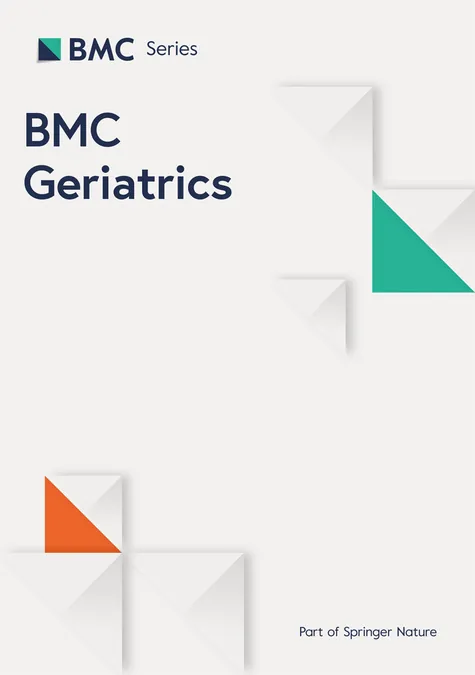
Are You at Risk? Uncovering Malnutrition, Sarcopenia, and Frailty as Major Predictors of Postoperative Delirium!
2024-11-27
Author: Jia
Postoperative Delirium: A Complicated Concern
Postoperative delirium (POD) may seem like a minor hurdle, but for many, it can signal a descent into serious complications. This acute and fleeting disorder of the brain often emerges within the first week after surgery, leading to impaired cognition, altered consciousness, and major disruptions in attention. Studies suggest that the prevalence of POD can range dramatically from 11.1% to 45.6%, depending on individual patient factors and the nature of the surgery they undergo.
Consequences of Postoperative Delirium
The consequences of POD are alarming. Not only does it elevate complication rates, but it also results in longer hospital stays, inflated healthcare expenditures, and an increased risk of institutionalization. As this condition progresses, patients may face repeat hospitalizations, functional decline, heightened mortality, and an escalated risk of developing dementia. Disturbingly, it’s estimated that between 30% and 40% of delirium cases could potentially be preventable, underscoring the urgent need for effective prevention strategies.
The Role of Malnutrition, Sarcopenia, and Frailty
Recent research highlights malnutrition, frailty, and sarcopenia as critical components that can escalate the risk of experiencing postoperative delirium. Malnutrition—characterized by an imbalance in nutrients due to illness or aging—can severely hinder cognitive and physical performance. Statistics show that 0.8% to 24.6% of elderly patients may suffer from malnutrition, with rates soaring to around 45% in surgical patients. On top of that, sarcopenia, the progressive loss of muscle mass common among older adults and sometimes younger individuals, is also a significant risk factor that contributes to falls, fractures, and impairments in daily living activities.
Frail Patients and Delirium Risk
Additionally, frailty—often marked by vulnerability to both physical and psychological stressors—intensifies the chances of experiencing delirium post-surgery. The alarming statistics paint a picture where frail patients have a 5.34-fold increase in the risk of developing delirium compared to non-frail individuals.
A Study on Risk Factors
Recognizing these risk factors, a recent prospective study aimed to assess how malnutrition, sarcopenia, and frailty correlate with postoperative delirium across various surgical contexts. The study, which included 421 patients aged 70 and above undergoing elective or emergency surgeries, was meticulously designed and adhered to ethical standards.
Study Findings
In this study, they evaluated several parameters including the Clinical Frailty Scale (CFS) and the SARC-F questionnaire to determine the frailty status and assess the likelihood of sarcopenia. Their findings were shocking: frail patients exhibited a delirium incidence of 27.3%, and those flagged for probable sarcopenia had a 64% chance of experiencing delirium—an outright alarming proposition for pre- and postoperative care protocols.
The Importance of Nutritional Assessment
The importance of nutritional status cannot be overlooked. With about 64.8% of patients in the study showing evidence of either malnutrition or a risk of malnutrition, immediate assessment interventions seem imperative to ward off potential delirium. This study illustrates a strong correlation between nutritional deficiencies and the likelihood of postoperative delirium, echoing findings from prior research.
Conclusion: A Call for Action
In summary, the integration of a comprehensive geriatric assessment, especially regarding nutritional status and muscle strength, is unarguably crucial in preoperative care to mitigate the risk of delirium. With patient safety and recovery outcomes at stake, healthcare providers must prioritize these assessments as part of their surgical protocols.
As the elderly population continues to rise and surgery becomes more complex, this study serves as a clarion call for preventive measures— because when it comes to delirium, forewarned is forearmed!



 Brasil (PT)
Brasil (PT)
 Canada (EN)
Canada (EN)
 Chile (ES)
Chile (ES)
 España (ES)
España (ES)
 France (FR)
France (FR)
 Hong Kong (EN)
Hong Kong (EN)
 Italia (IT)
Italia (IT)
 日本 (JA)
日本 (JA)
 Magyarország (HU)
Magyarország (HU)
 Norge (NO)
Norge (NO)
 Polska (PL)
Polska (PL)
 Schweiz (DE)
Schweiz (DE)
 Singapore (EN)
Singapore (EN)
 Sverige (SV)
Sverige (SV)
 Suomi (FI)
Suomi (FI)
 Türkiye (TR)
Türkiye (TR)